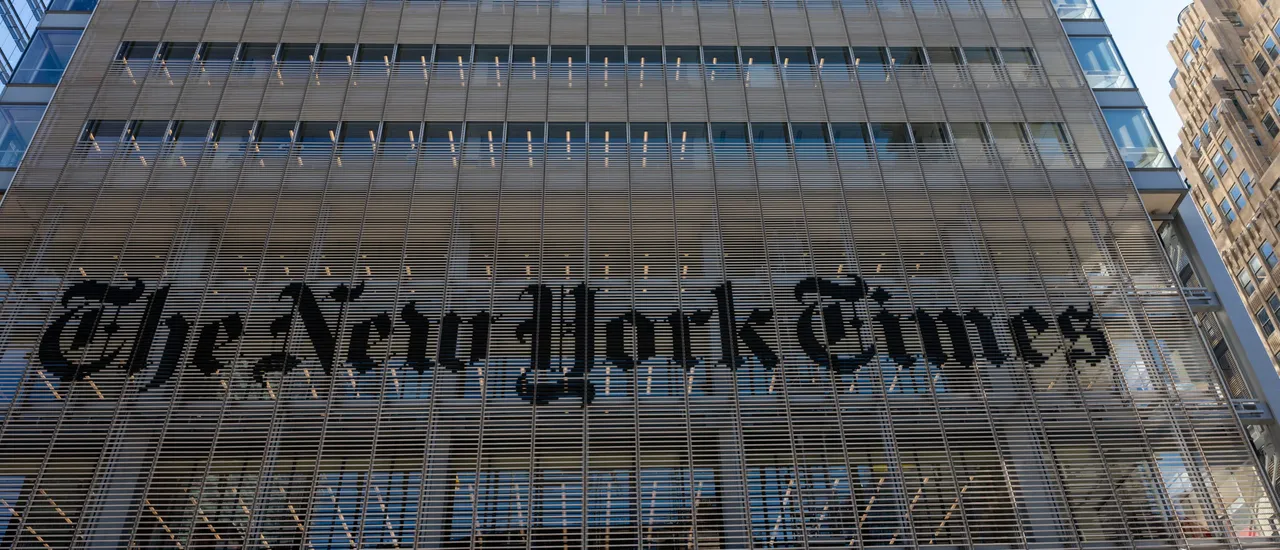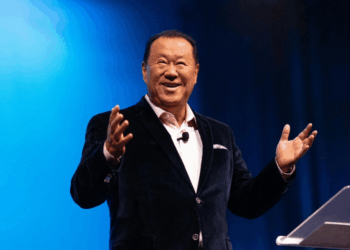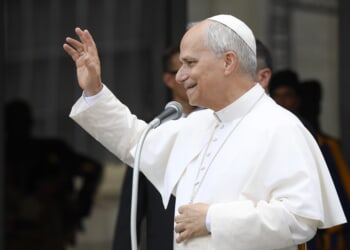An off-the-record media spokesman for former FBI Director James Comey acknowledged the “not normal” nature of his job with the bureau when pressed by congressional staffers, according to a transcript of the call published Thursday.
Columbia University Professor of Law Daniel C. Richman — revealed in documents declassified Tuesday to have acted as Comey’s confidant and media fixer — acknowledged in a June 2017 call with Senate Judiciary Committee staffers that he was one of Comey’s personal attorneys and that it’s “not normal for a law professor to represent the former Director of the FBI,” the transcript reads.
Empower Oversight Founder Jason Foster conducted the interview as then-chief investigative counsel for Sen. Chuck Grassley of Iowa, then the top Republican on the Senate Judiciary Committee. Foster described the interview as “extraordinary” and “bizarre” in a message to the Daily Caller News Foundation.
The call between Richman and Senate staffers occurred a few days following Comey’s testimony in a June 2017 hearing in which he denied leaking classified intelligence to the media. He also denied leaking classified intelligence to the media through an intermediary.
The transcript of the call between Richman and congressional staffers was first published by reporter Catherine Herridge.
With the newly declassified records via @FBIDirectorKash into media leaks and the role of third parties,
Director Comey’s 2017 testimony to the Senate Judiciary Committee about leaks appears problematic.@ChuckGrassley : Director Comey have you ever been an anonymous source in… pic.twitter.com/i2m6aRFCaj
— Catherine Herridge (@C__Herridge) August 14, 2025
Richman confirmed to the Senate staffers that after Trump fired Comey, the ousted FBI director used Richman to supply the press with the notes he wrote about his interactions with Trump. Richman refused to answer the committee’s questions about whether he had retained copies of those notes.
“Prof. Richman also stated something to the effect of ‘You do things by your rules’ and ‘I do things by my rules,’” reads the transcript of the June 2017 call with Senate Judiciary Committee staffers. “He also stated at approximately this point in the conversation, ‘If you guys want to send me another letter, send me another letter.’”
The professor also told congressional staffers “I am one of his lawyers,” referring to Comey, per the transcript.
“Prof. Richman stated Comey provided him a ‘packet’ of documents as his lawyer, and stated, ‘yes I’m being vague on purpose,’” the transcript reads.
Richman indicated he would assert attorney-client privilege should the committee subpoena him.
“There is a substantial extent to which I would raise attorney-client issues,” he replied, according to the transcript.
The call ended with Richman sharing that he could not recall certain details about his claims because he was doing his “morning exercises.”
Richman said he thought the committee’s questions for him had been answered by a staffer for Special Counsel Robert Mueller. Richman also acknowledged that was not normal. Richman asserted then that he was working with the bureau, although by then Comey had been fired by Trump.
A tranche of documents unearthed by FBI Director Kash Patel about leaks of classified intelligence to the press — first reported by Just The News and released in full by The Federalist on Tuesday — includes a summary of an August 2017 FBI investigation codenamed Arctic Haze into who leaked the classified intelligence exposed in four articles. (RELATED: Pulitzer Prize-Winning WaPo Reporting Was Based Off ‘Blatantly False’ Intel, ODNI Report Says)
In investigating one of the four stories — an April 2017 NYT article delving into Comey — Arctic Haze investigators followed a trail that led them up the FBI chain of command to the bureau’s former director, Comey.
Comey and Richman discussed the classified intelligence reported in the story in January 2017 and Richman spoke with a New York Times reporter soon after, the documents show.
Richman equivocated on whether he had revealed classified information.
“Richman told the interviewing agents he was sure ‘with a discount’ he did not tell Schmidt about the Classified Intelligence,” the report states.
Comey arranged for Richman to be a special government employee with Top Secret clearance in 2015. Arctic Haze investigators described his duties for Comey as including “Going Dark”: acting as liaison to the media without the involvement of the FBI press office, the report states. Richman continued to contact the media after he left his FBI post.
Richman did not respond to a request for comment.
The NYT Story
Comey had tapped Richman, as well as subordinates at the FBI, to spoon-feed the NYT a story that recast his controversial decisions to drop a probe of Hillary Clinton’s home email server and initiate one into President Donald Trump and Russia in a more positive light, the documents indicate.
The NYT story described Comey’s handling of dual investigations into the two leading candidates in the 2016 election in the months leading up to Election Day.
“Circumstances and choices landed him in uncharted and perhaps unwanted territory, as he made what he thought were the least damaging choices from even less desirable alternatives,” the paper reported.
But the NYT’s characterization of Comey as an impartial top cop is distorted, according to documents declassified in recent weeks. The declassified documents indicate that Comey lent the FBI imprimatur to false allegations that Russian President Vladimir Putin aspired to elect Trump, despite evidence in FBI’s possession that the origins of these allegations could be found in Clinton campaign talking points as part of a scheme to divert attention from her own legal jeopardy related to her email server.
Breaking: Comey’s media mole told FBI he shaped Russia narrative, needed ‘discount’ to deny leaking intel https://t.co/qNgoQJY1pv
— John Solomon (@jsolomonReports) August 13, 2025
The NYT describes Richman as “a longtime confidant and friend of Mr. Comey’s” without reporting Richman’s position with the FBI.
“Jim sees his role as apolitical and independent,” Richman told the paper at the time. “The F.B.I. director, even as he reports to the attorney general, often has to stand apart from his boss.”
The NYT story also reported that Comey handled the Trump-Russia story “by the book, with the bureau’s traditional secrecy,” and that the FBI had not revealed that investigation until March 2017, “long after the election.” This claim is undermined by an October 2016 NYT story that had earlier reported the existence of the investigation into Trump and Russia.
Arctic Haze investigators confirmed that Richman also supplied other information in the story other than his on-the-record quote.
Comey did not respond to a request to comment sent via his book publishing company.
The FBI communications office also hosted three briefings for the Times reporters with either the direction or authorization of Comey, the new documents also reveal.
The briefings pertained to Midyear Exam, the FBI’s investigation into Clinton’s email server. They included officials Peter Strzok and Lisa Page, who had worked on both the Midyear Exam and the Trump-Russia investigation, Crossfire Hurricane. The briefings took place on March 10, 2017, March 30, 2017, and April 10, 2017.
The documents state that the paper shared with the FBI that they had the classified information reported in the story at the March 30 briefing, citing the communications professionals present for the briefings.
Meanwhile, Strzok and Page gave different responses as to whether the classified information was discussed. Strzok said he couldn’t recall the paper having the intelligence. Page said that she and Strzok spoke privately after learning that the Times had the classified information and that she alerted her supervisor.
The FBI closed Arctic Haze without pursuing criminal charges.
The Classified Information
The NYT story investigated by Arctic Haze included “Classified Information which directly related to whether or not the Attorney General should have been recused from the Midyear Exam investigation,” per the newly declassified documents.
Coupled with the Times story, the documents indicate that the intelligence consisted of Russian intelligence alleging improper contact between the Clinton campaign and Obama’s Attorney General Loretta Lynch about Midyear Exam. (RELATED: Obama Intel Chief James Clapper Told NSA Head To Get On Board With ‘Our Story’ On Russiagate Intel)
Comey had misgivings about Lynch in part because of “the discovery last year of a document written by a Democratic operative that seemed — at least in the eyes of Mr. Comey and his aides — to raise questions about her independence,” the Times story reported. “In a bizarre example of how tangled the F.B.I. investigations had become, the document had been stolen by Russian hackers.”
Comey confirmed to Arctic Haze investigators that this Russian intelligence had influenced his decision to close the Midyear Exam investigation.
More details have come to light in recent days about this Russian intelligence. The text of the intelligence — including memos and apparent emails — were published in full on July 31 as part of the formerly classified annex to Special Counsel John Durham’s 2023 investigation.
The intelligence — drawn from emails pilfered from Democratic Party insiders and retrieved by an American ally from within the Russian hacking operation — alleged that Clinton staff, with support from “special services,” were preparing “scandalous revelations” about Trump’s business relations with the “Russian Mafia” to discredit him.

The New York Times building stands in Midtown on February 07, 2024 in New York City. (Photo by Spencer Platt/Getty Images)
However, this partisan plot was kept from some investigators on the Crossfire Hurricane probe into Trump and Russia, according to Durham’s report. Durham’s report describes one investigator becoming emotional when learning about the plan from Durham’s team.
“Supervisory Special Agent-I became visibly upset and emotional, left the interview room with his counsel, and subsequently returned to state emphatically that he had never been apprised of the Clinton Plan intelligence,” the report states. “Supervisory Special Agent-1 expressed a sense of betrayal that no one had informed him of the intelligence.”
Despite its apparent centrality to Comey’s decision to close the Midyear Exam probe, the FBI’s formal judgement was that the Russian intelligence was not credible, according to the declassified Durham annex. More than eight thumb drives of information retrieved from within the Russian hacking operation were never thoroughly examined, according to other recently declassified documents.
Caden Olson contributed reporting.
All content created by the Daily Caller News Foundation, an independent and nonpartisan newswire service, is available without charge to any legitimate news publisher that can provide a large audience. All republished articles must include our logo, our reporter’s byline and their DCNF affiliation. For any questions about our guidelines or partnering with us, please contact licensing@dailycallernewsfoundation.org.





![Gavin Newsom Threatens to 'Punch These Sons of B*thces in the Mouth' [WATCH]](https://www.right2024.com/wp-content/uploads/2025/08/Gavin-Newsom-Threatens-to-Punch-These-Sons-of-Bthces-in-350x250.jpg)
![ICE Arrests Illegal Alien Influencer During Her Livestream in Los Angeles: ‘You Bet We Did’ [WATCH]](https://www.right2024.com/wp-content/uploads/2025/08/ICE-Arrests-Illegal-Alien-Influencer-During-Her-Livestream-in-Los-350x250.jpg)








